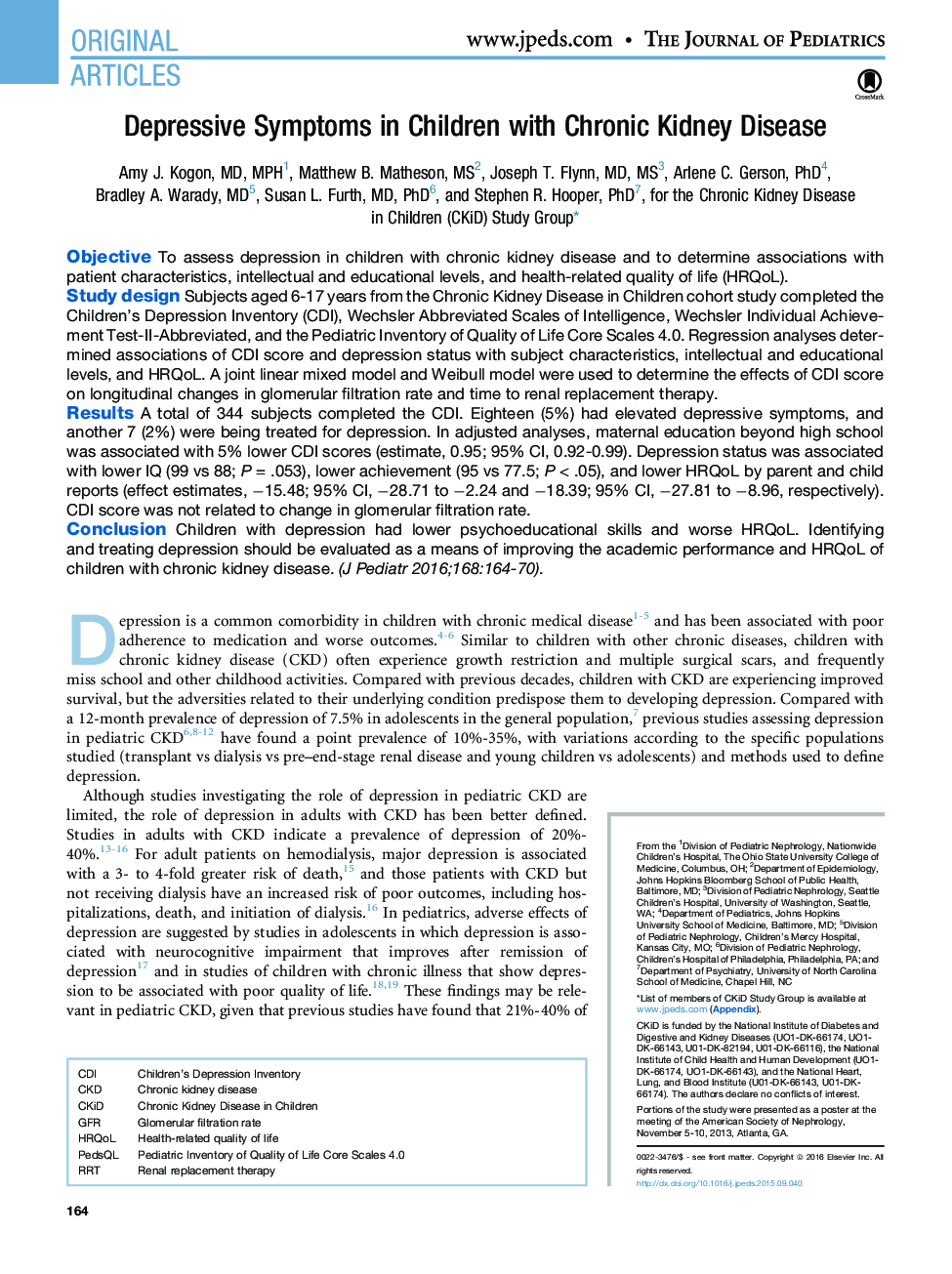| Article ID | Journal | Published Year | Pages | File Type |
|---|---|---|---|---|
| 6219896 | The Journal of Pediatrics | 2016 | 8 Pages |
ObjectiveTo assess depression in children with chronic kidney disease and to determine associations with patient characteristics, intellectual and educational levels, and health-related quality of life (HRQoL).Study designSubjects aged 6-17 years from the Chronic Kidney Disease in Children cohort study completed the Children's Depression Inventory (CDI), Wechsler Abbreviated Scales of Intelligence, Wechsler Individual Achievement Test-II-Abbreviated, and the Pediatric Inventory of Quality of Life Core Scales 4.0. Regression analyses determined associations of CDI score and depression status with subject characteristics, intellectual and educational levels, and HRQoL. A joint linear mixed model and Weibull model were used to determine the effects of CDI score on longitudinal changes in glomerular filtration rate and time to renal replacement therapy.ResultsA total of 344 subjects completed the CDI. Eighteen (5%) had elevated depressive symptoms, and another 7 (2%) were being treated for depression. In adjusted analyses, maternal education beyond high school was associated with 5% lower CDI scores (estimate, 0.95; 95% CI, 0.92-0.99). Depression status was associated with lower IQ (99 vs 88; P = .053), lower achievement (95 vs 77.5; P < .05), and lower HRQoL by parent and child reports (effect estimates, â15.48; 95% CI, â28.71 to â2.24 and â18.39; 95% CI, â27.81 to â8.96, respectively). CDI score was not related to change in glomerular filtration rate.ConclusionChildren with depression had lower psychoeducational skills and worse HRQoL. Identifying and treating depression should be evaluated as a means of improving the academic performance and HRQoL of children with chronic kidney disease.
